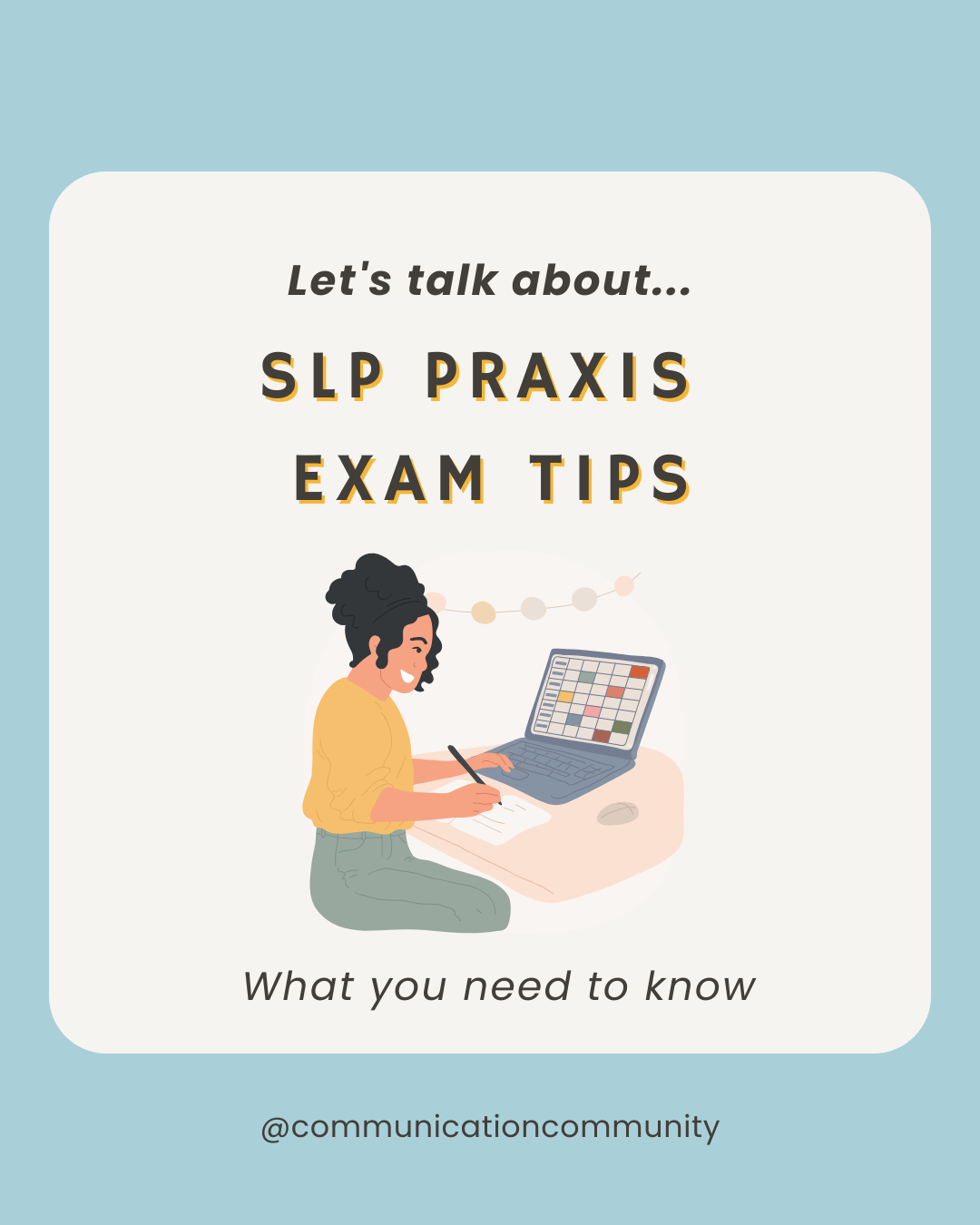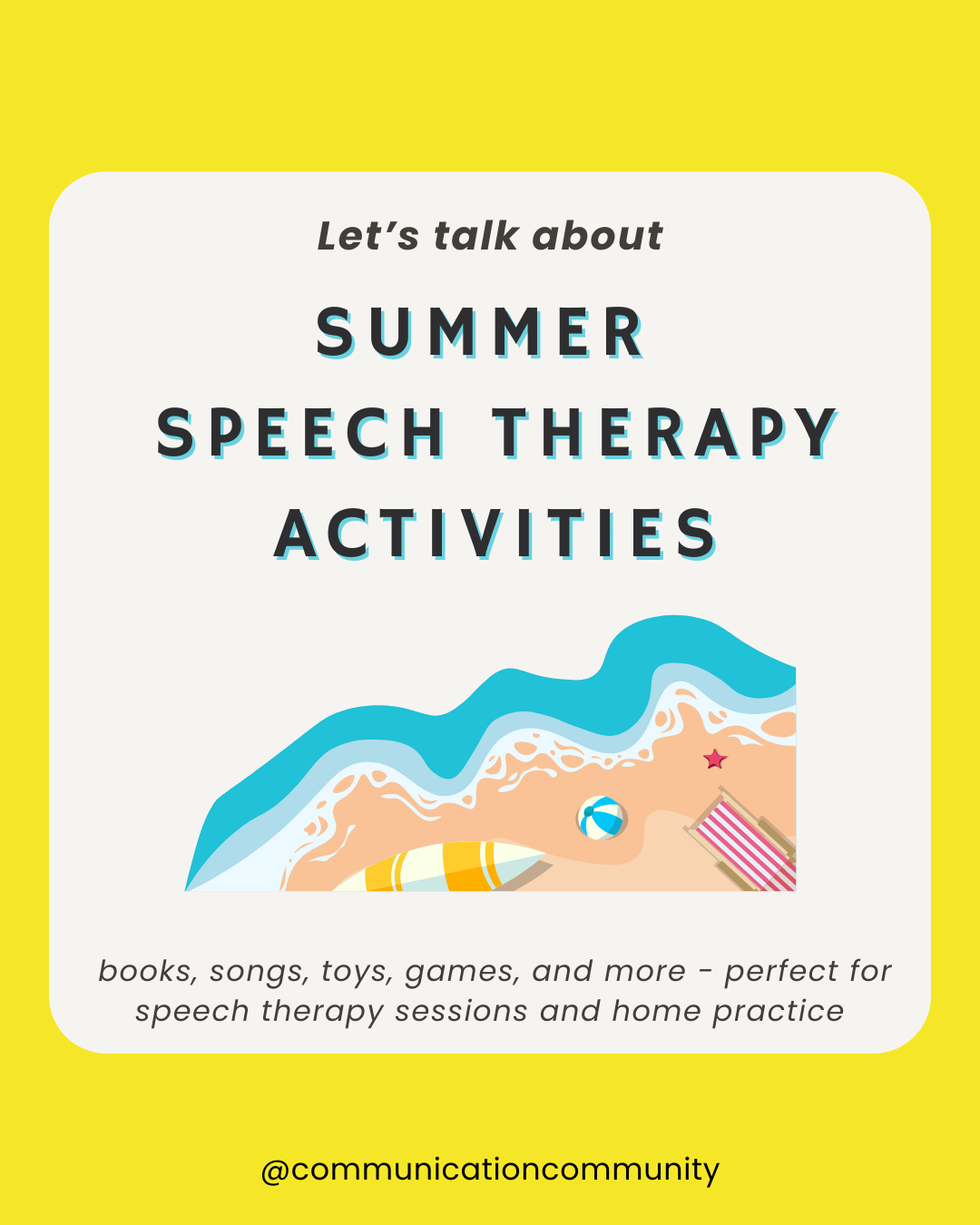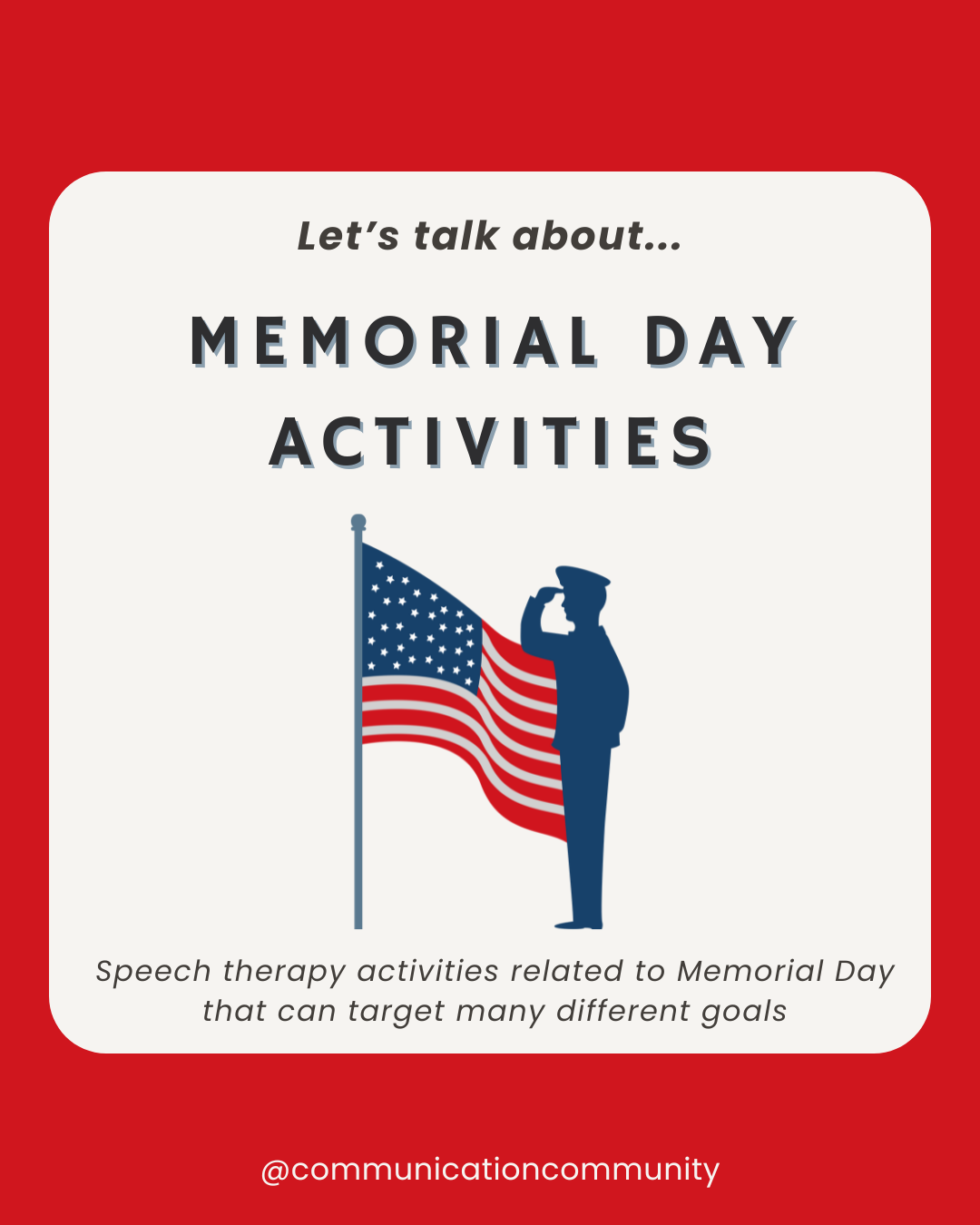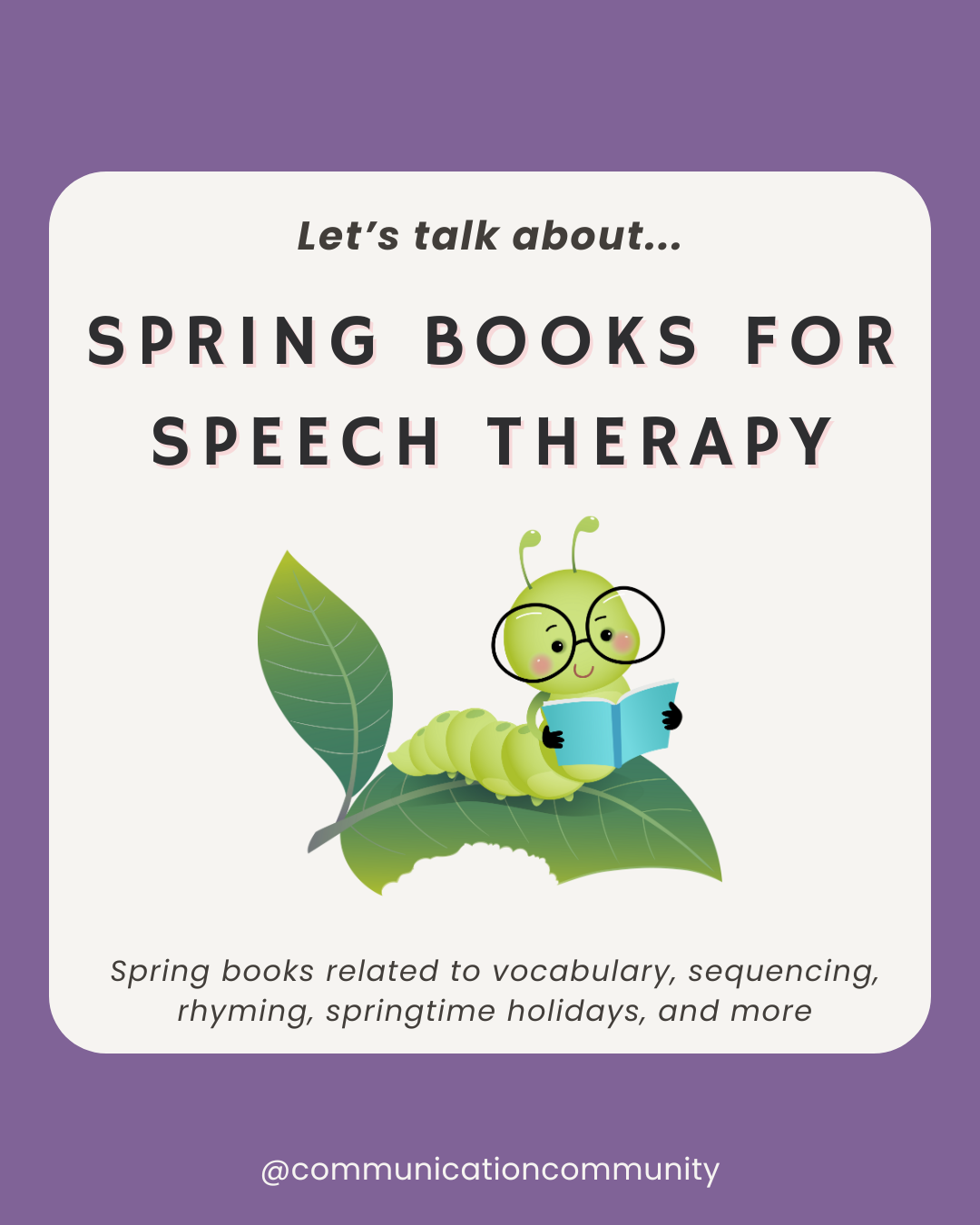Whether you are a new SLP who is preparing for their first “real” caseload, or an experienced clinician who is starting the school year back up - we have you covered! Check out some of our tips to help you feel confident planning for your first week of speech therapy sessions.
How Do I Prepare for My First Speech Therapy Session?
Have confidence!

A positive mindset and feeling prepared can make a huge difference in your workplace performance: Let’s just start by saying, of course, this is much easier said than done. However, this is an area that will always be beneficial to work on, and it is an important “skill” that shouldn’t be overlooked! Confidence is crucial in any workplace, particularly in clinical settings where decisive action, clear communication, and professional expertise are fundamental. Some evidence based strategies to boost confidence in the workplace include:
- Mastery experiences: According to Albert Bandura's self-efficacy theory, the most effective way to build confidence is through mastery experiences! These are instances in which you succeed in a challenging task or role, bolstering your belief in your abilities. Look for opportunities in your workplace where you can gain experience and mastery, even if they seem challenging at first.
- Visualization: Studies have shown that the brain doesn't differentiate much between performing an action and visualizing it. Regularly visualizing yourself performing therapy interventions and techniques confidently can improve your actual performance.
- Positive self-talk: Research indicates that our thoughts can influence our emotions and behaviors. Make an effort to engage in positive self-talk, reinforcing your abilities and successes. For example, instead of thinking, "Ugh, I'll never understand this approach," try, "I have worked very hard to get where I am, and I can handle it."
- Seek constructive feedback: Actively seeking feedback and using it for self-improvement can significantly enhance your confidence. That is another reason why I like to emphasize the importance of, or at least try to, having a say in who you will be learning from and guiding your supervision. Regular feedback from a trustworthy and reliable mentor can help you identify your strengths, recognize areas for improvement, and track your progress.
- Mindfulness and stress management: Yes. Yes. Yes. Evidence shows that mindfulness practices, such as meditation or deep breathing exercises, can improve emotional resilience and reduce anxiety, indirectly boosting self-confidence. Also, maintaining a healthy work-life balance can prevent burnout and keep your confidence levels high.
- Continued education and professional development: Staying updated with the latest research and developments in your field not only improves your competence but also boosts your confidence. Many of these resources are free to access! Two of our favorites include the podcast, SLP Nerdcast (free to listen) and the Informed SLP (subscription fee).
Review important documentation
Review important student documents and become familiar with your caseload: Knowing who you'll be working with before school starts will save you a lot of stress. Familiarize yourself with each of your students' Individualized Education Programs (IEPs), their goals, previous therapy strategies used, and progress notes (if possible). This will give you a better picture of the students you will be working with, their interests (ahem… helpful when preparing resources/materials to sustain engagement) and a head start in preparing individualized treatment plans. I would highly recommend making a specific marking or highlight in your scheduler to note each of your IEP meeting dates throughout the year. You will thank yourself later.
Additionally, reviewing documentation ahead of time will give you a heads up if there are any changes to service or further assessment preparations, like goal writing. Goal writing can be daunting, especially if you have multiple students to write for. Looking for a way to make your life easier by creating quality goal statements? Look no further!
Check out some of our most popular goal resources here!
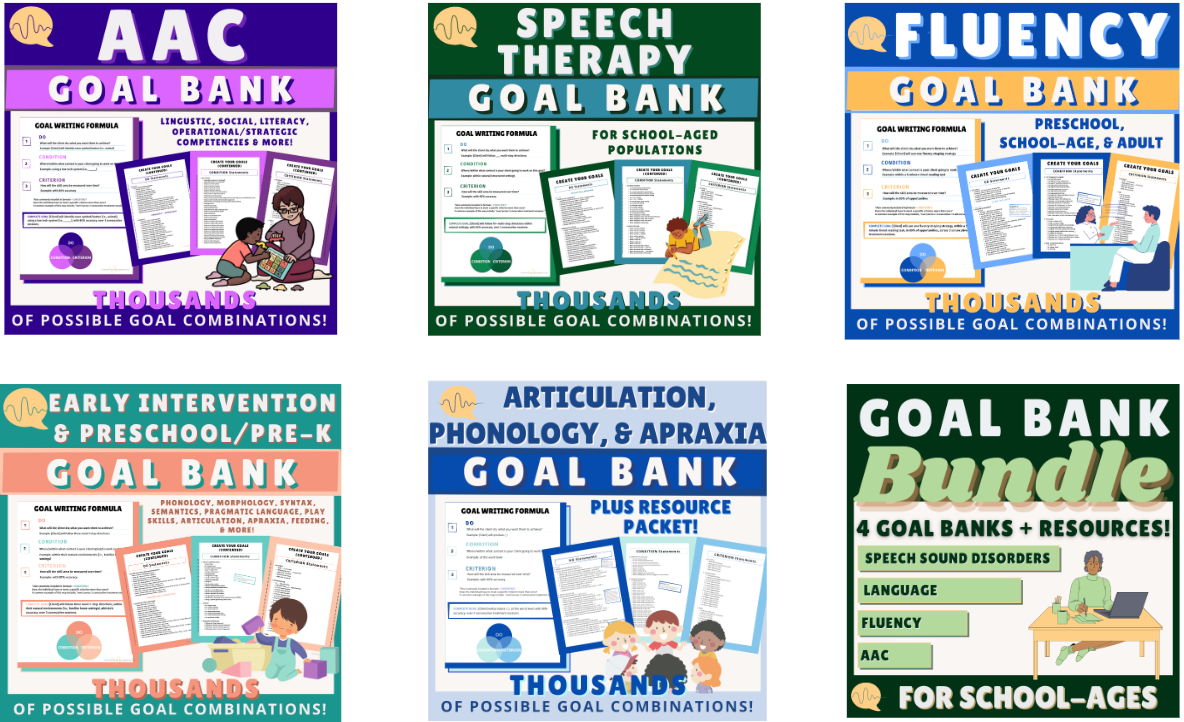
Familiarize yourself with your caseload
Familiarize yourself with the individuals you are working with AND their families: While most of the schools/practices I have worked with usually have their own parent contact forms, I like to send home my own (like this one). Why? Well, it gives me an opportunity to introduce myself to my student/clients’ families (in this day and age, email is usually how it goes) and it saves me the time and energy trying to email administrators or disrupt classroom teachers during their school day to access contact information when I need it. Generating a standard intake form containing a personal blurb (tell them who you are!), requested mode(s) of contact, and space for them to share any additional information about their child (e.g., favorite books), can be incredibly helpful.
I should also note that while collecting “general” intake information can be helpful, it does not always give us a full picture of our students. That is why I find ethnographic interviewing SO beneficial. Ethnographic interviews can provide a more client-centered approach that actively considers their culture and value systems. When combining ethnographic information with traditional intake questions, it can help related service providers like us develop a broader understanding of the individuals we work with, and their needs, and then personalize treatment to the best of our ability.
Find our FILLABLE (yes, perfect for emailing) ethnographic interview form here.

Organize your files and space
Organize your student paperwork and related documentation/materials: It may take a moment or two to get into the swing of things, but developing an organizational system ahead of time can save you A LOT of time once the school year really gets moving. I’m referring to your files, materials, as well as therapy space. For many of us, we have pretty large caseloads, which also means that we need a good system to keep all of our student files and goals in a convenient place. File cabinets are ideal; however, not always space conducive/available depending on your setting. Two of my favorite (portable) organization materials include an accordion type of file organizer or the classic data clipboard. If you are going the clipboard route, the storage compartment is a MUST.
I should also remark that we are in a day and age where digital organization and cloud storage is usually most practical and efficient. If you are looking for that paper-free approach to organizing student data/documents, we are all for it! Some popular digital tools that are designed to be HIPAA compliant include (but are not limited to): Google Workspace, Evernote, and the SLP Toolkit.
Focus on connection, not perfection
Find ways to build rapport starting with the first session: One of my favorite ways to do this is to take the pressure off of “doing work” during the first session and make it more interactive and fun! That isn’t to say that you can’t make clinical observations or use informal assessment measures (hi, language/narrative samples), but it will remove the obviousness from it. I have yet to find a student who enjoys feeling “tested” in the first week of school. One of my favorite ways to connect with my students and break the ice is to do an About Me activity, like the one seen below. I love how it can be used as a take-home assignment, a classroom handout, and/or a group or individual session activity.
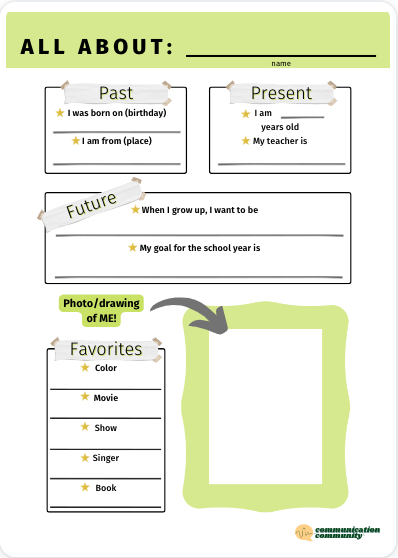
Starting a new school year is always a little daunting, but with these strategies and tips in your toolkit, we hope you will feel confident for a successful first week back!
This post contains some affiliate links and may be (slightly) compensated if you use them, but all opinions are our own. We appreciate the support!
References/further resources
Bandura, A. (1977). Self-efficacy: Toward a Unifying Theory of Behavioral Change. Psychological Review, 84(2), 191–215
Bandura, A. (1982). Self-efficacy mechanism in human agency. American Psychologist, 37(2), 122–147
Beitz, J. M. (2014). Confidence: A concept analysis. Nursing Forum, 49(2), 71–83
Driskell, J. E., Copper, C., & Moran, A. (1994). Does mental practice enhance performance? Journal of Applied Psychology, 79(4), 481-492
Khoury, B., Sharma, M., Rush, S. E., & Fournier, C. (2015). Mindfulness-based stress reduction for healthy individuals: A meta-analysis. Journal of Psychosomatic Research, 78(6), 519-528
London, M. (2015). The Power of Feedback: Giving, Seeking, and Using Feedback for Performance Improvement (Applied Psychology Series). Routledge
Meichenbaum, D. (1977). Cognitive-Behavior Modification: An Integrative Approach. Plenum
Post, S. G., Pomeroy, J., Keirns, C. C., Cover, V. I. A., Dorn, M. L., Boroson, L., & ... Roess, M. (2019). Confidence and the Medical Student: Navigating the Professional Identity Formation Process. Journal of Medical Education and Curricular Development, 6
Cover Image Credit: Drawn to AAC
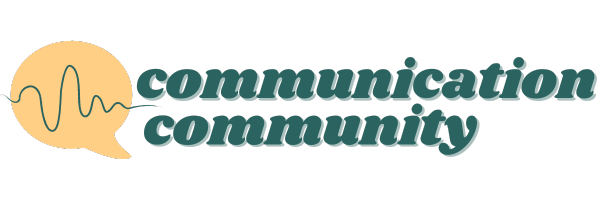
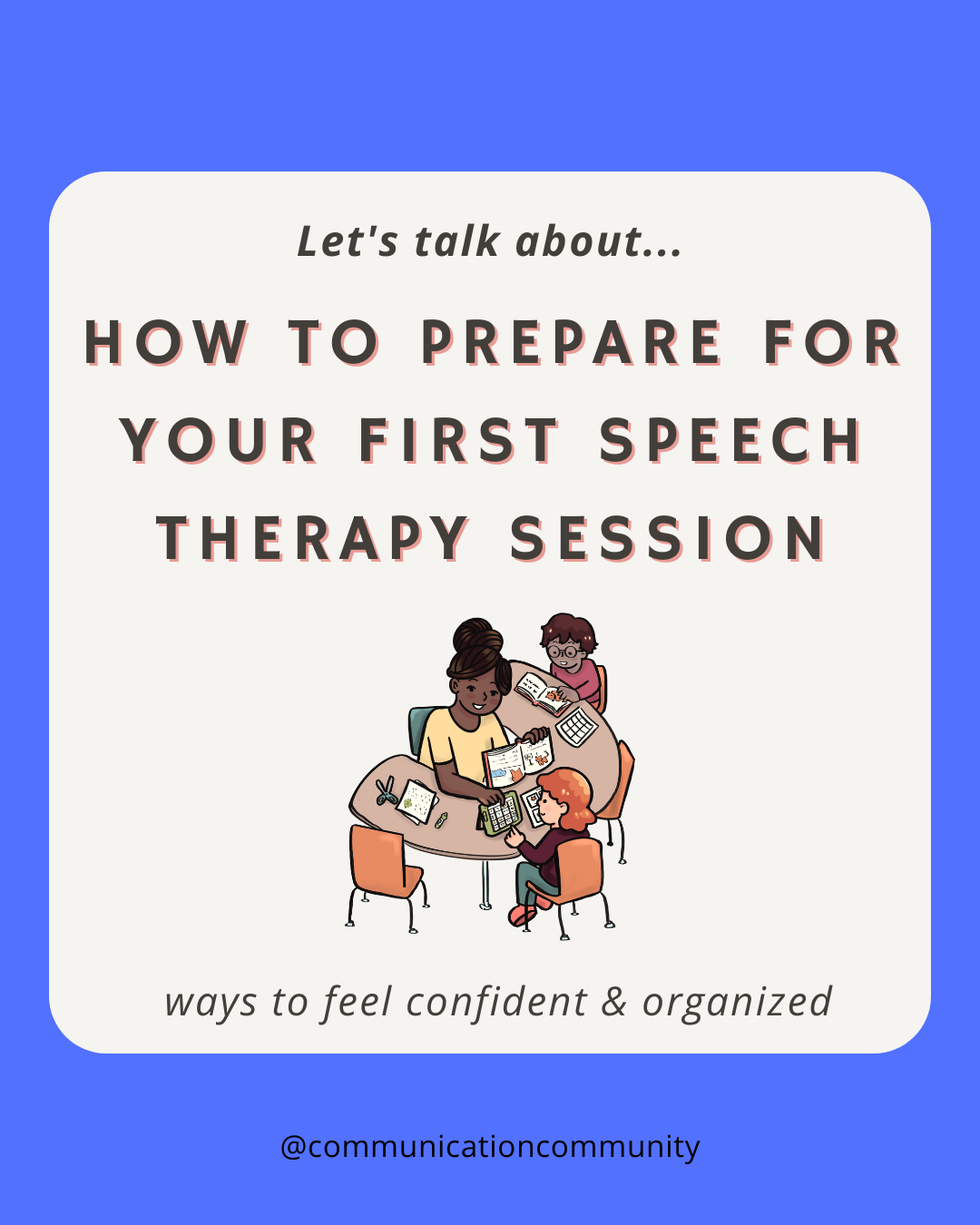
![How to Write Apraxia Goals [with goal bank]](https://www.communicationcommunity.com/content/images/2024/07/Apraxia-Goals--1-.png)
